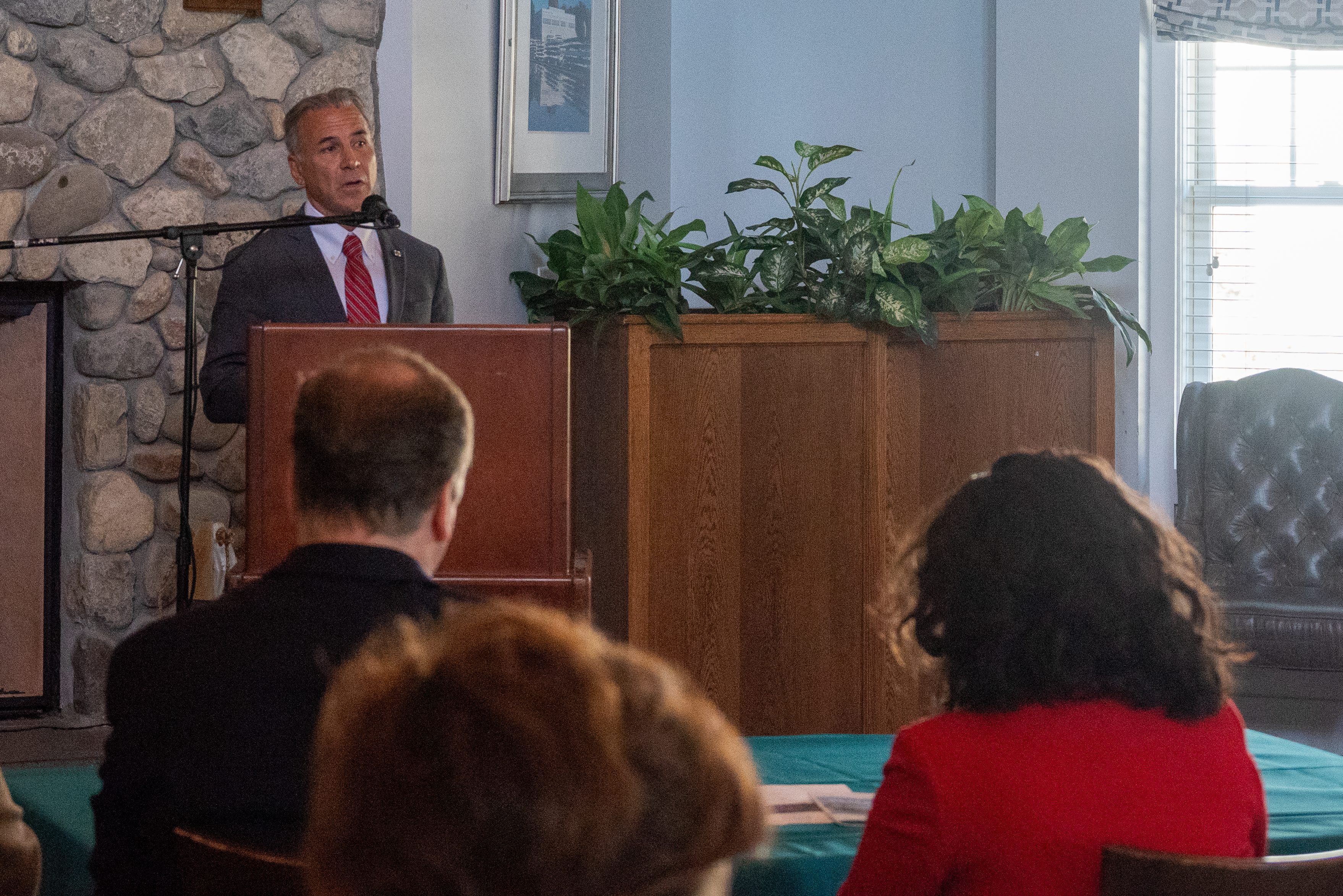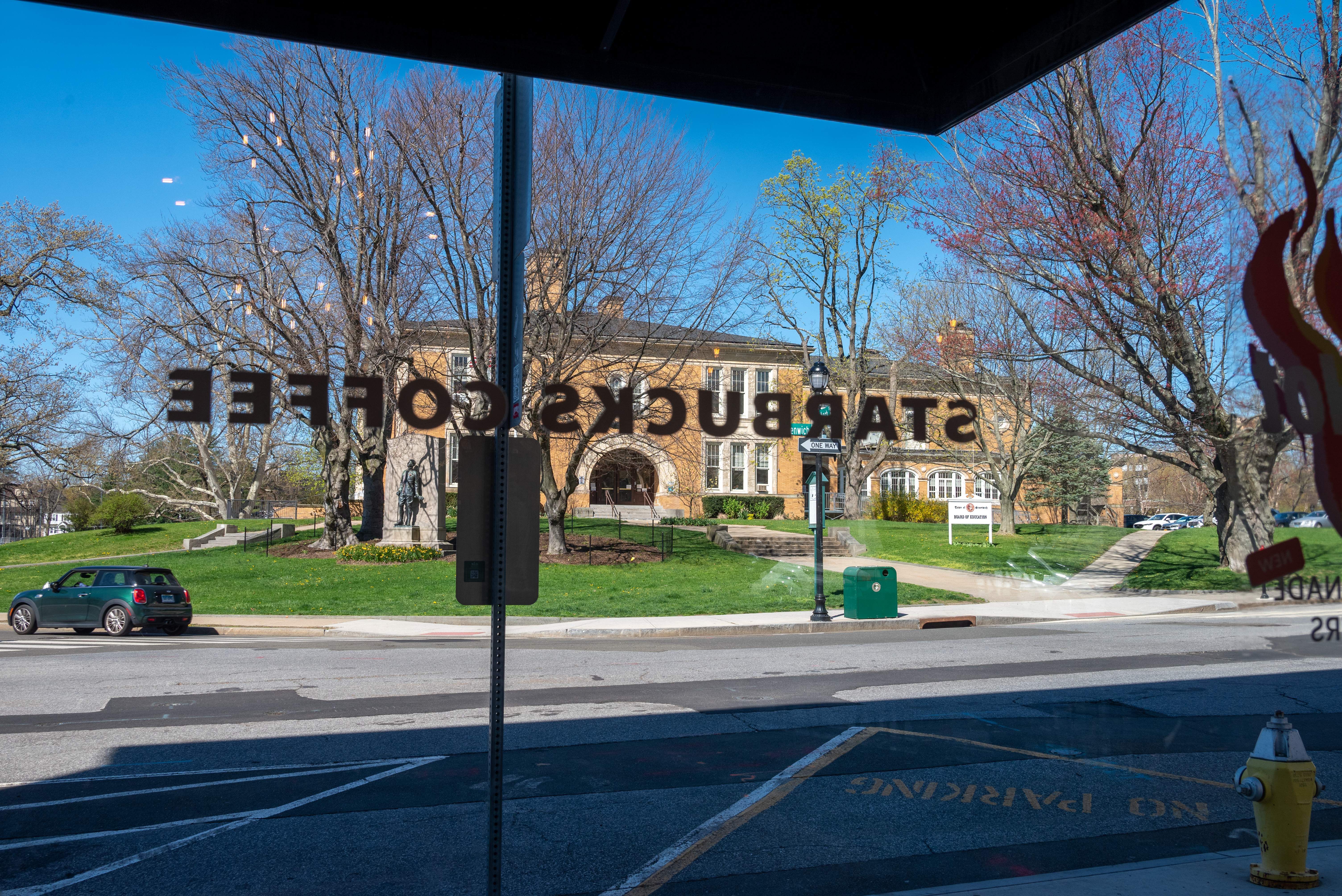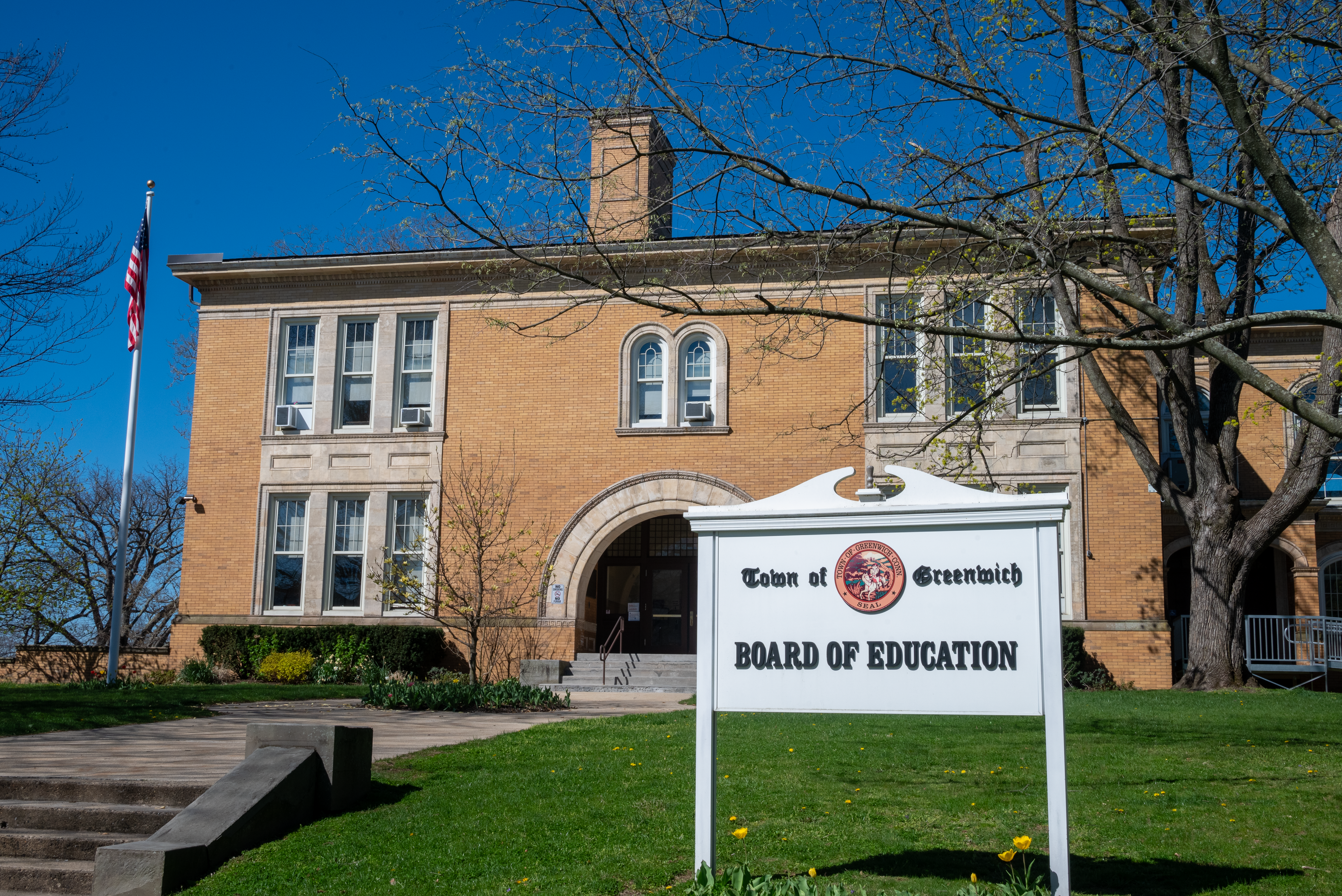
Fred Camillo, Greenwich’s First Selectman, gave his annual Fireside Chat to members of the Greenwich Chamber of Commerce at the Greenwich Water Club on the morning of April 16.
Camillo has held his current position since 2019 and served as State Representative for District 151 for a decade before that. A native of the town, he often provides his perspective as somebody who grew up in the Cos Cob neighborhood.
The First Selectman began the annual event by acknowledging that it serves as an informal “State of the Town” address between him and members of the Chamber.
“Greenwich continues to be a premier place in which to live, work, raise a family, and retire,” Camillo said. “So, when we get designations like the first age friendly and dementia friendly town in Connecticut, that’s important. When we get chosen as one of the safest towns in America by several organizations, that’s important.”
Camillo also noted that Greenwich continues to have the lowest mill rate in the state while maintaining an AAA credit rating. Preserving open land and improving pedestrian safety were also among the priorities that Camillo listed.
“Those are all reasons why people move here and why people stay here. But like anything else you have to continue to evolve and stay on top of it because things change,” Camillo said. He added that the need to stay adaptable stems from the fact that Greenwich is not a state unto itself.
“We’re actually one of 169 municipalities, so we are governed by the state of Connecticut, we work with them but sometimes we also have to deal with mandates,” Camillo said, singling out one regulation as a particular issue. “There’s a law in the books that’s 33 years old, it’s called 8-30g and I’m sure you’re sick of hearing about it.”
Intended to ensure that at least 10 percent of housing stock in every municipality is deemed affordable, 8-30g has been at the center of numerous legal challenges by smaller, wealthier municipalities. The law allows housing developers to bypass many local zoning regulations if at least 30 percent of new units will be deed restricted, government certified Affordable housing.
Camillo said that since deeds expire and the total number of housing units changes continuously that achieving the goal of 10 percent affordable housing is a near impossibility, “like a dog chasing its tail. You’re never going to get there.”
However, 8-30g does not apply in 29 Connecticut municipalities that have satisfied the 10 percent affordable housing condition, including neighboring Stamford. According to the latest report from the Office of Legislative Research five Fairfield County municipalities are in compliance with the law.
Camillo stressed the importance of supporting Greenwich Communities, the renamed Greenwich Housing Authority, and praised its efforts at revamping Armstrong Court and increasing the town’s affordable housing percentage to 5.8, after being at only 5.2 percent four years prior.
“We have to support Greenwich Communities and what they want to do over at Quarry Knolls and McKinney Terrace. That’s going to get us close to seven percent, that will get us a moratorium for four years,” said Camillo.
“The other big challenge is flooding,” Camillo said, attributing the problem primarily to the town’s aging infrastructure, which is in places more than a century old.
“We’re continuing to work on that. We’ve put millions into it. But if you really wanted to fix every single flood issue in every single part of town, you’re probably talking over half a billion dollars,” Camillo said. “And that’s probably a conservative estimate.”
In addition to housing and flooding, which he called the two biggest issues facing Greenwich, the First Selectman spoke about crime. He noted that Greenwich was ranked the tenth safest small town in the country by MoneyGeek and ranked in the top 100 safest cities in the United States by Neighborhood Scout.
“But it doesn’t matter,” he said. “You’re still going to always be a target.”
Camillo discussed a video that had recently made the rounds of a girl in a Greenwich park being beaten after using racial slurs, calling it disturbing. Despite high profile incidents, Camillo noted that in every case on or near Greenwich Avenue the police made arrests in short order. He defended the decision to stop assigning police to high-visibility traffic direction posts, freeing them up to serve in bicycle mounted positions which improve both community engagement and incident response times.

Camillo also highlighted moves he hopes to implement in the near future, including relocating the Board of Education. It currently occupies the Havemeyer building on Greenwich Avenue.

“We own the building and the building’s falling apart,” Camillo said. “I took a man who has a big business on the Avenue and does work all across the country through there and he said that a rehab is about $50 million.”
Camillo explained that he is working to convince all parties that moving the Board to new facilities that are a better fit for their current size could be a major positive for Greenwich. “I’d like to see them out of there because it’s a beautiful $100 million estimated property and it’s sitting in the middle of our commercial district. It just doesn’t make sense.”
“That’s going to free up a beautiful asset.”
Camillo also listed renovations for Veteran’s Plaza Park including a statue of Greenwich native and former US President George H.W. Bush and adding hiking trails to wetland adjacent to the Greenwich Community Center as projects he was excited to pursue in the coming year.




















